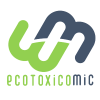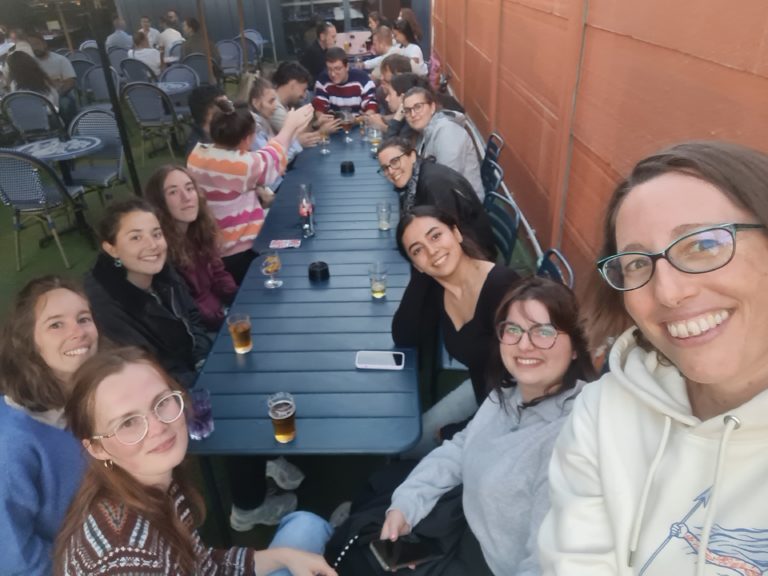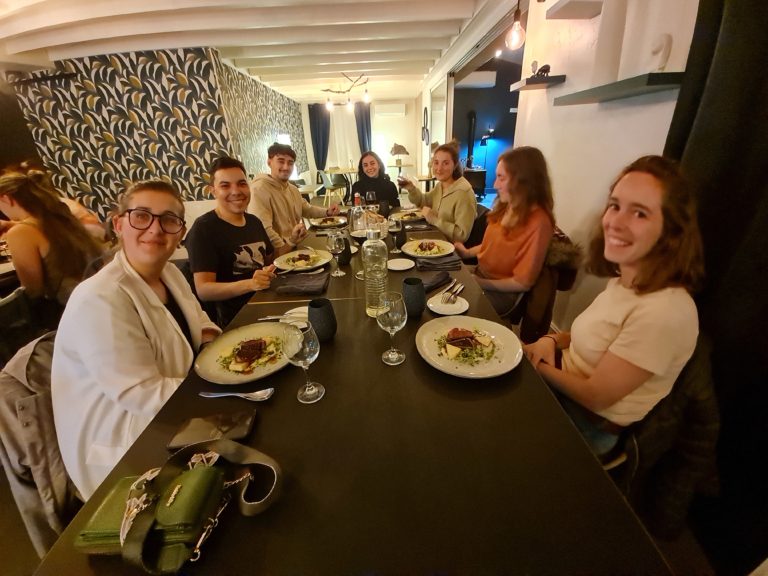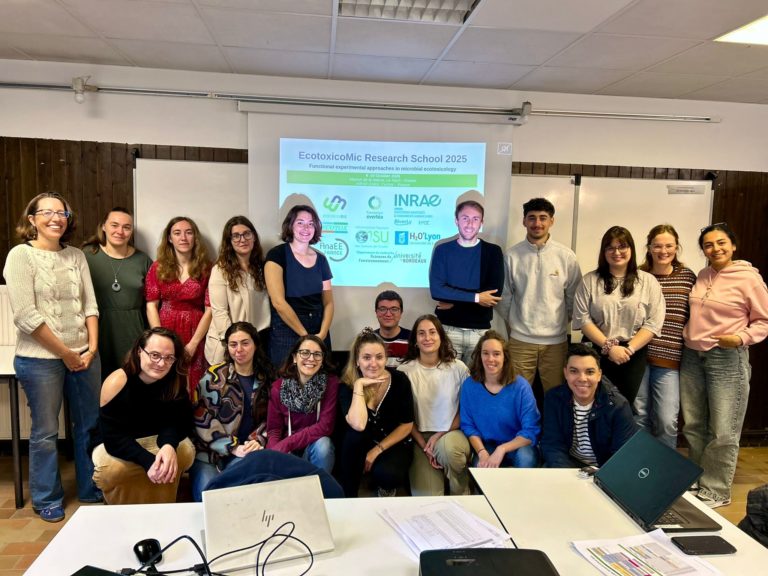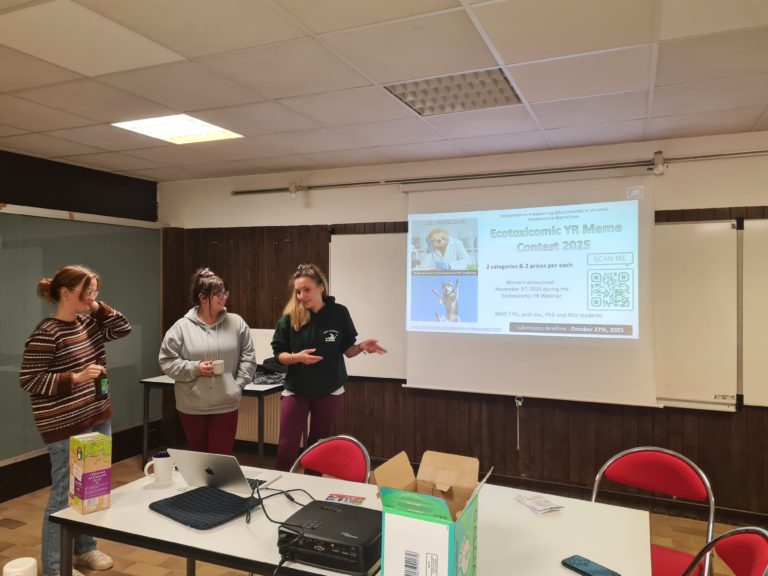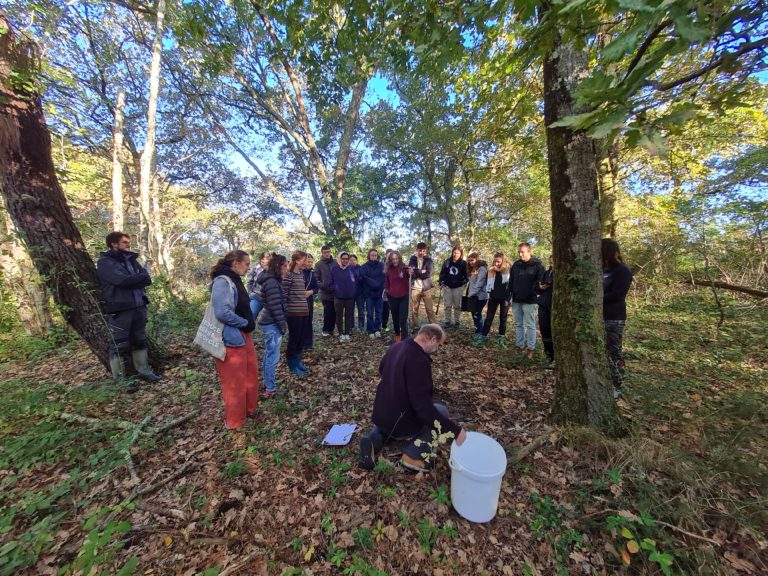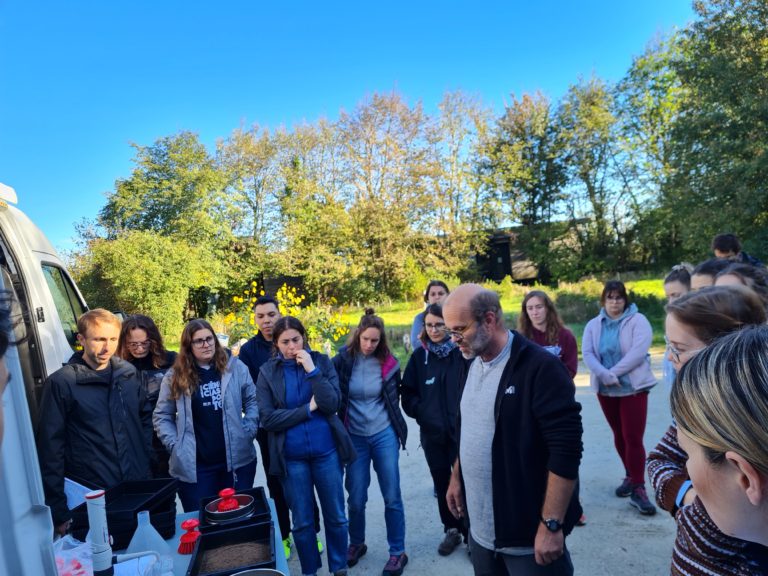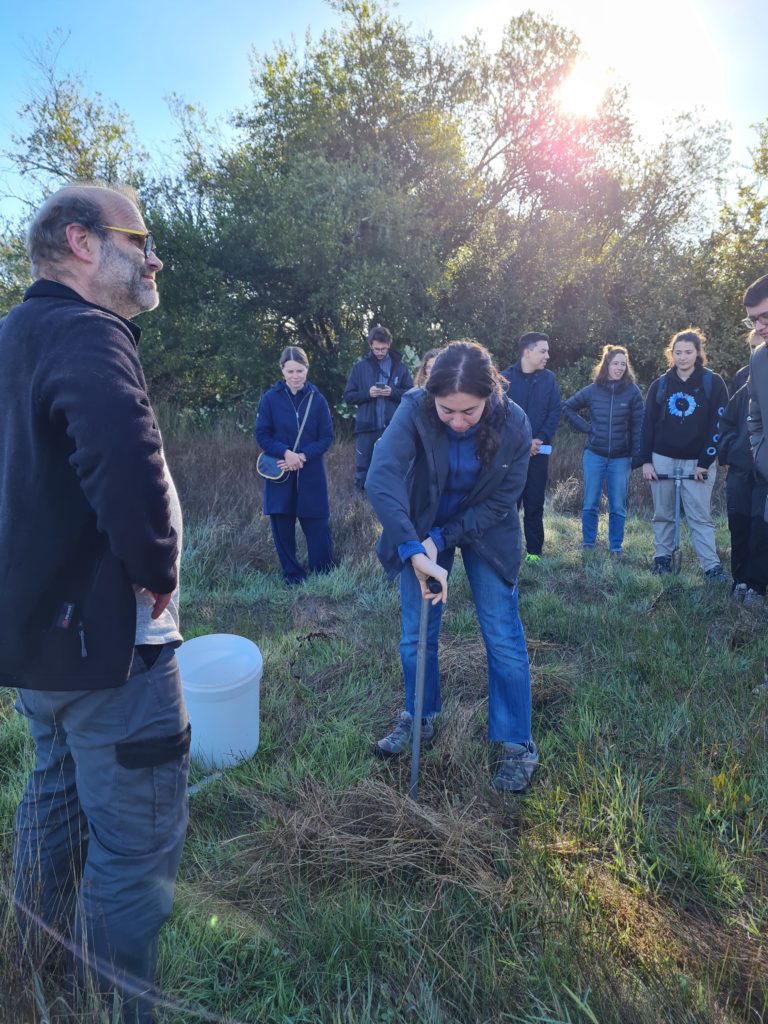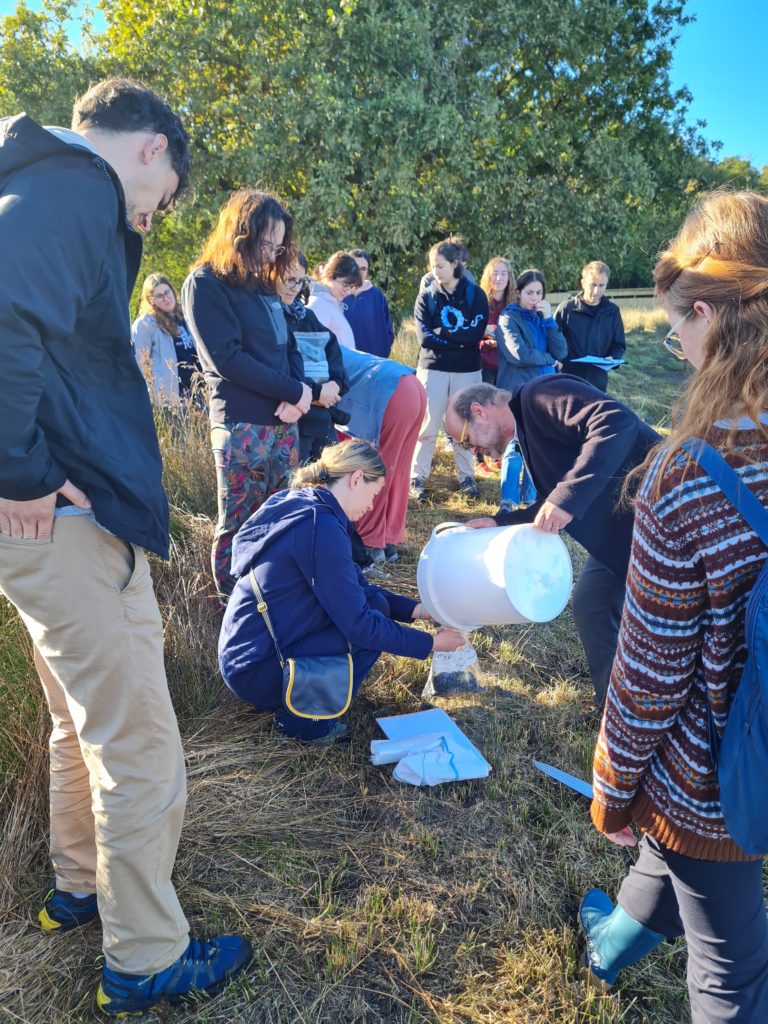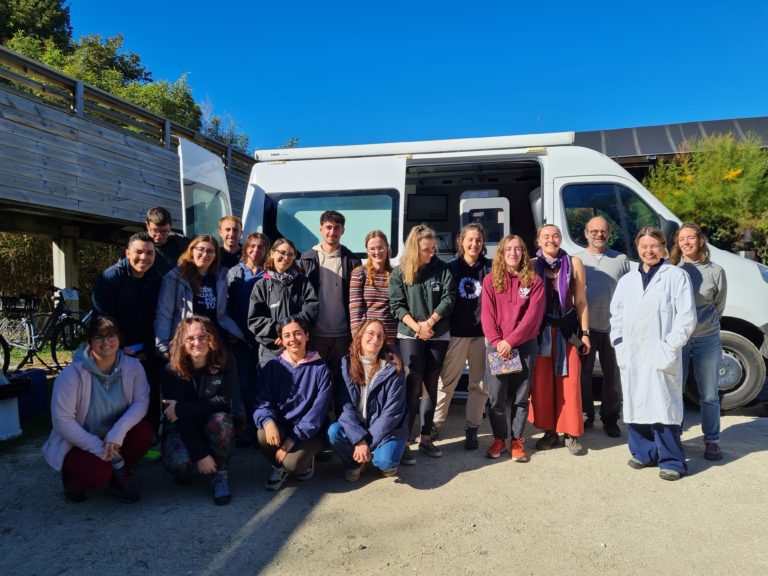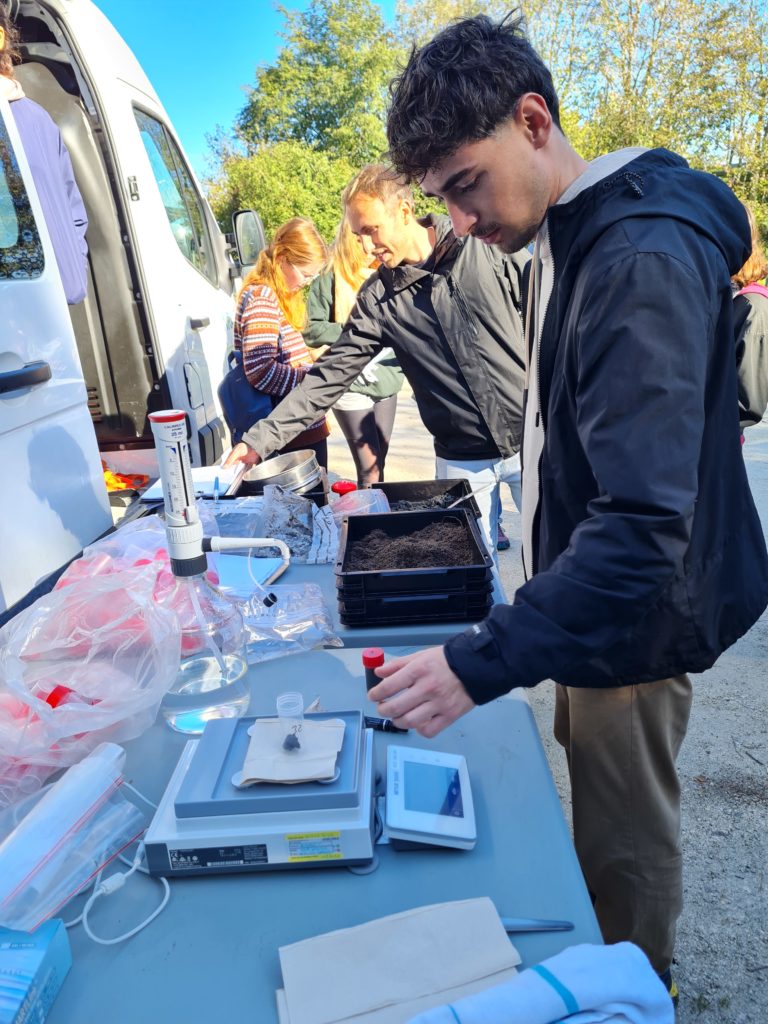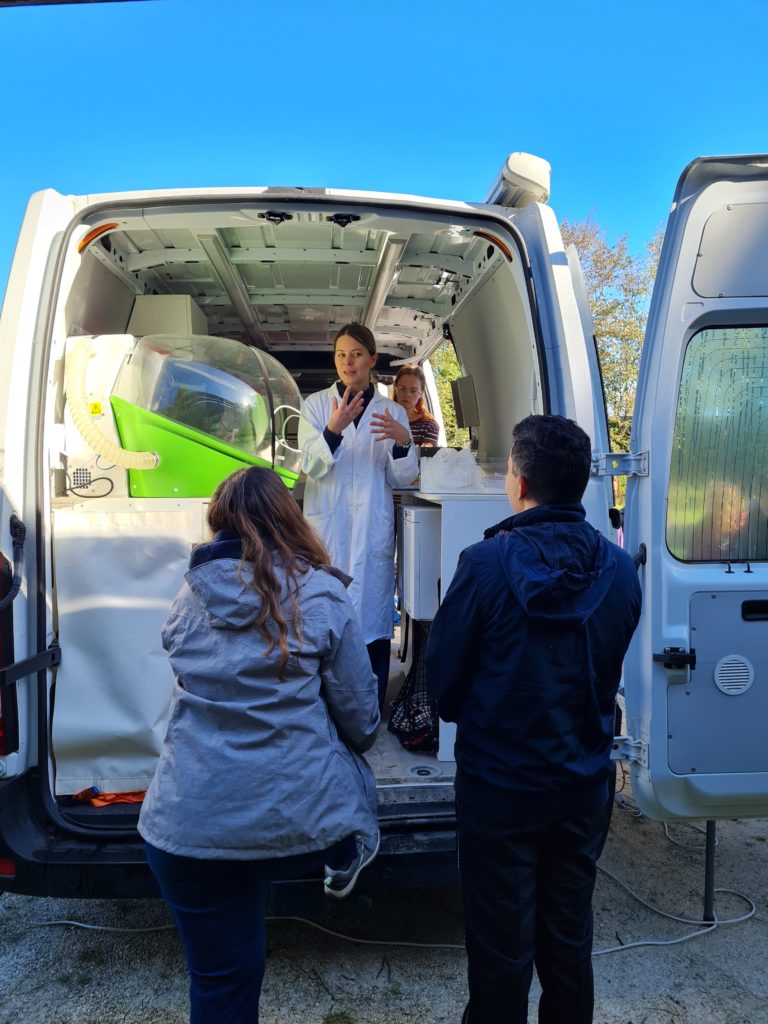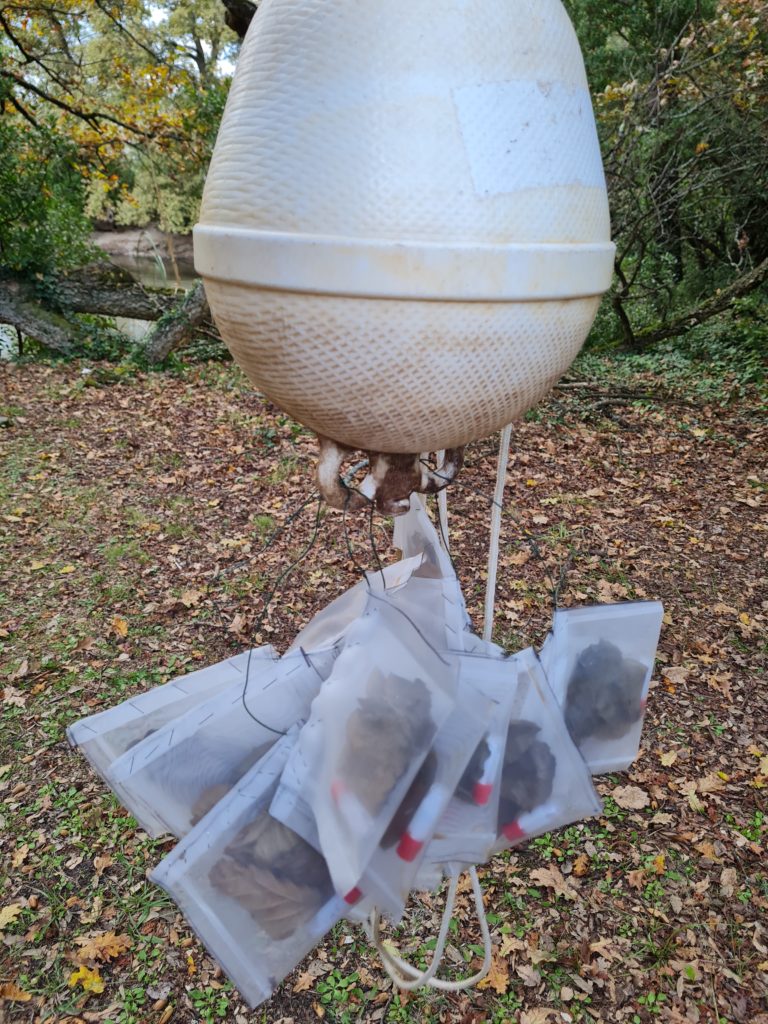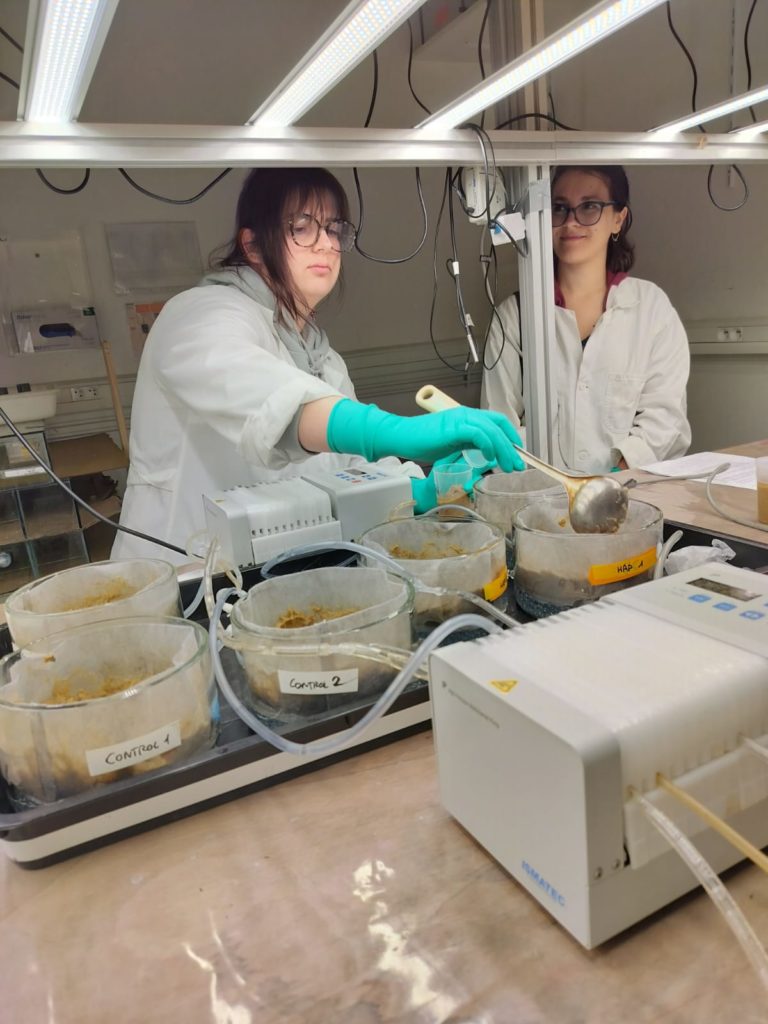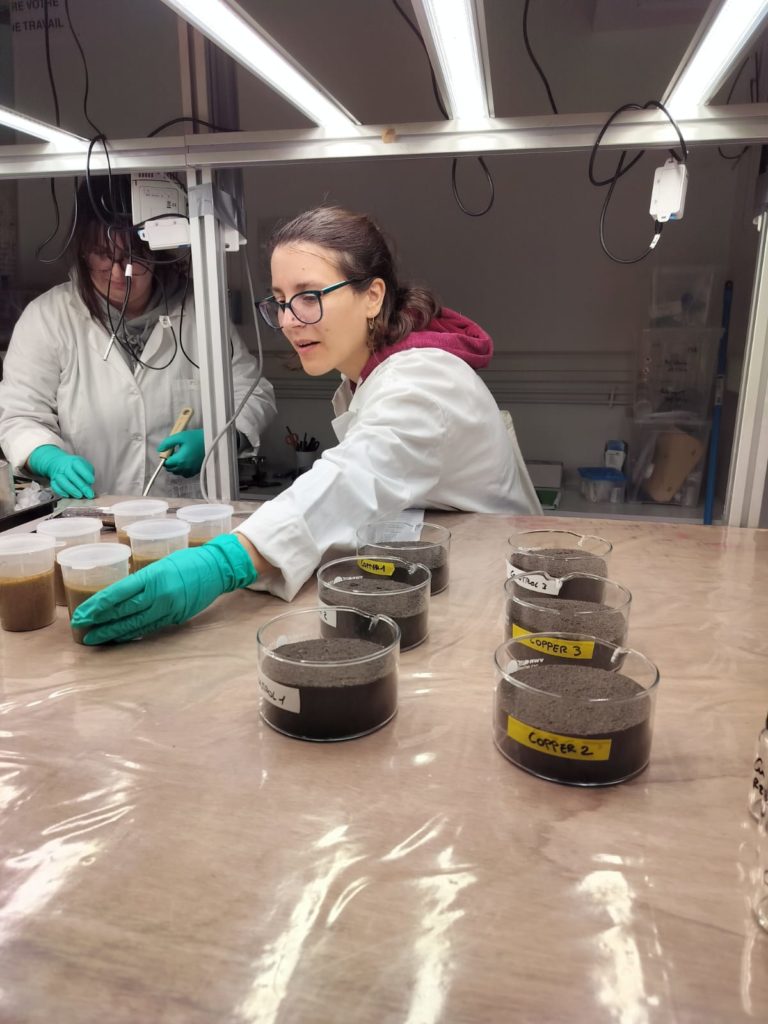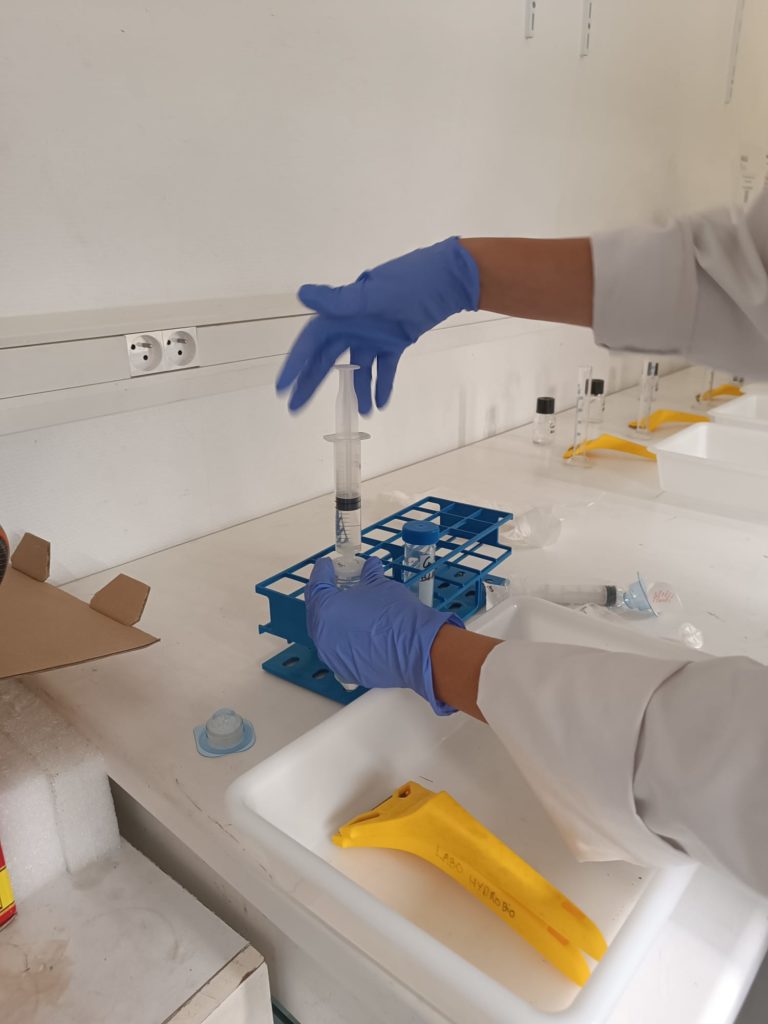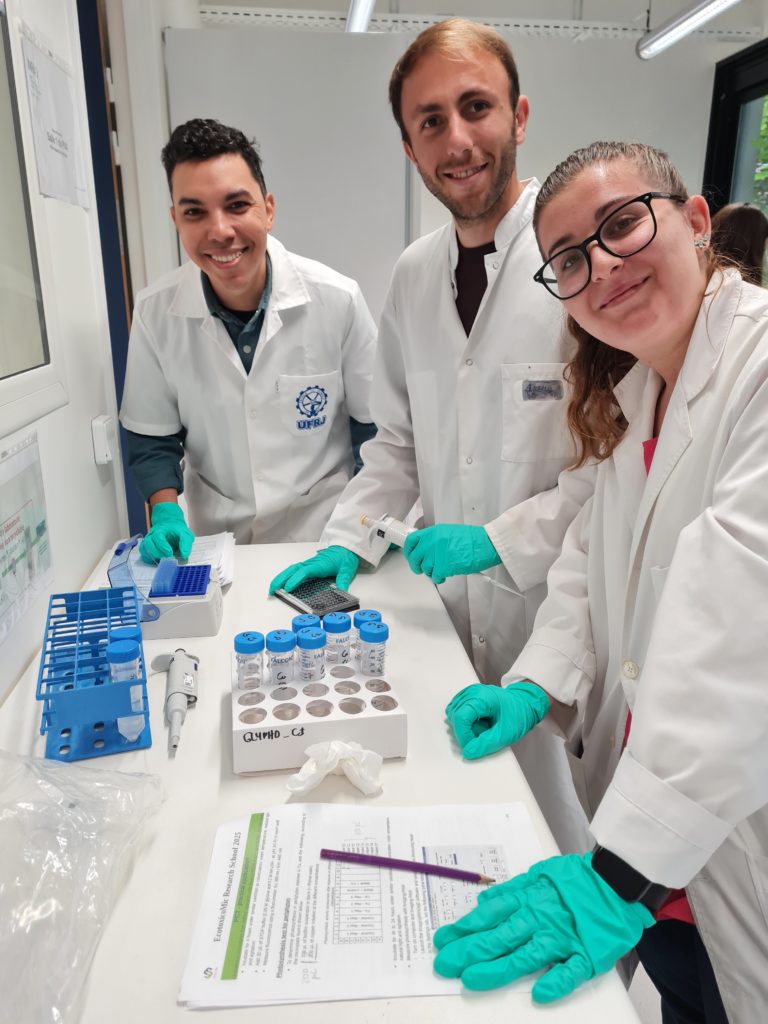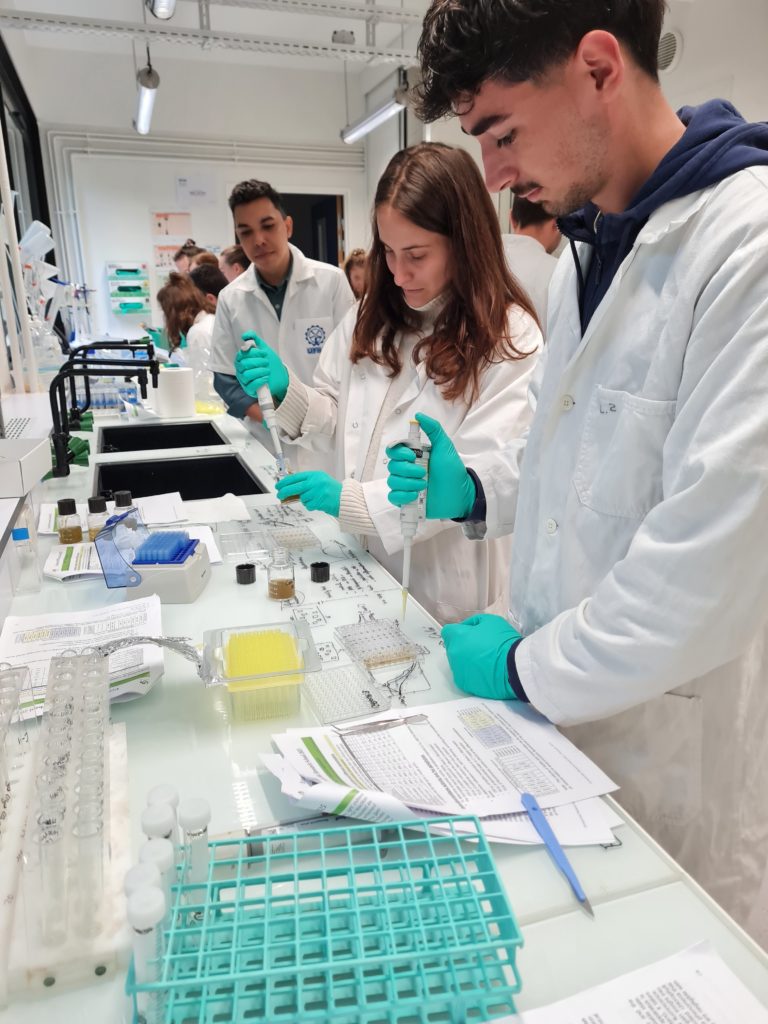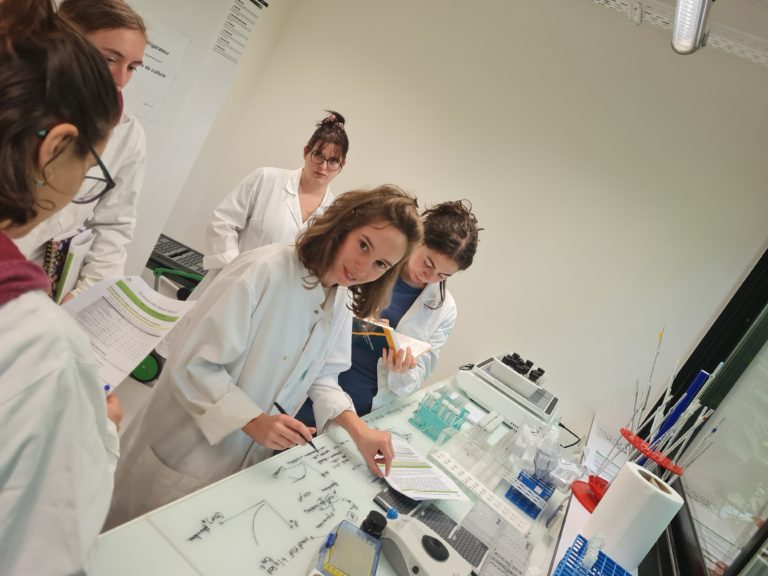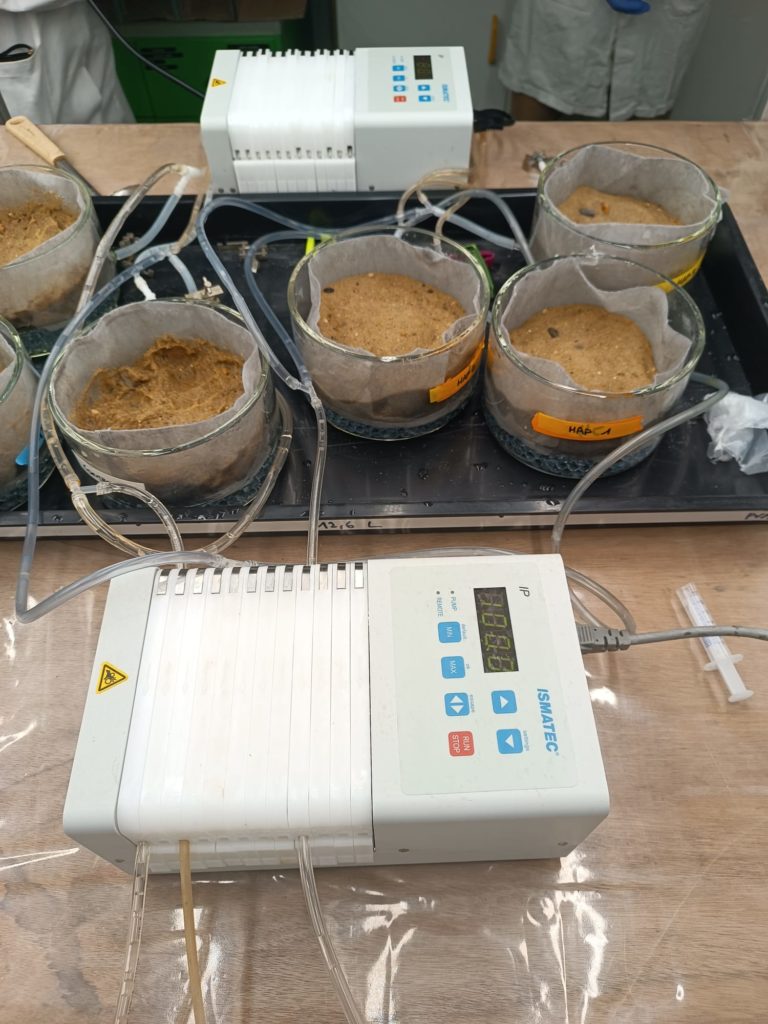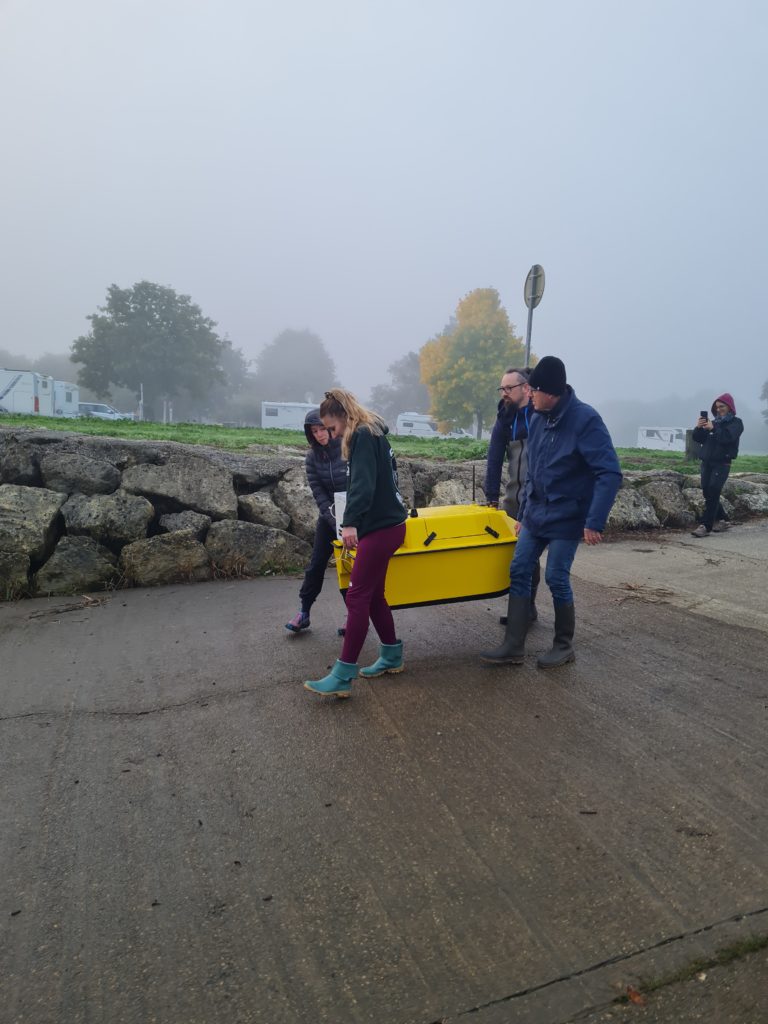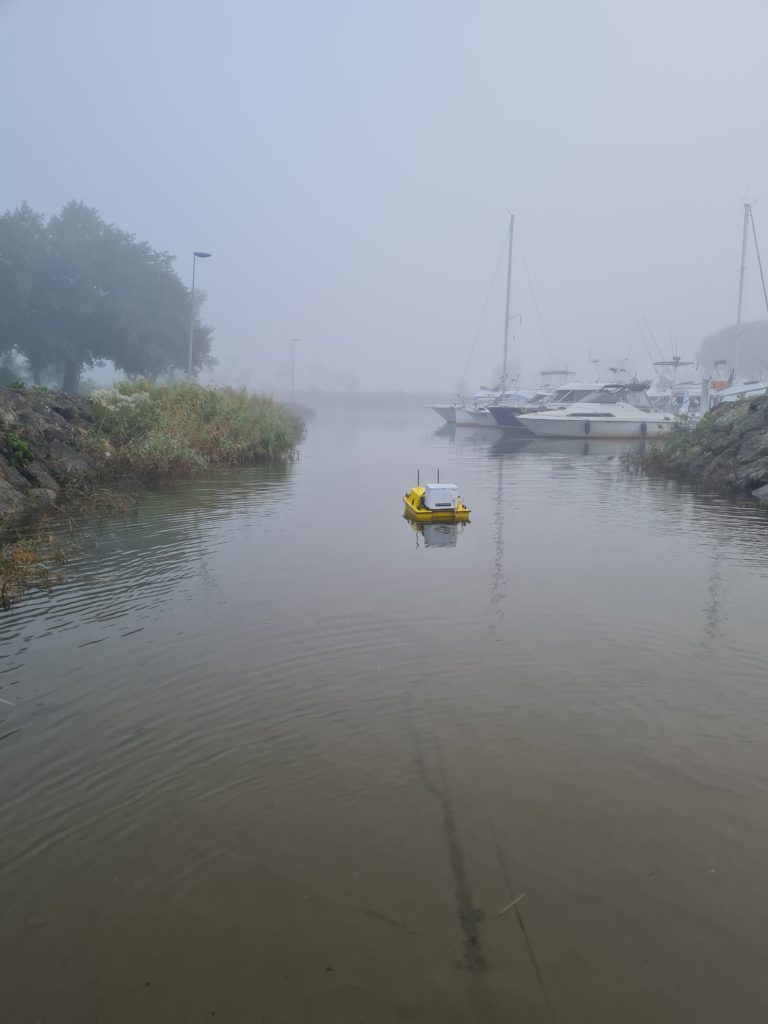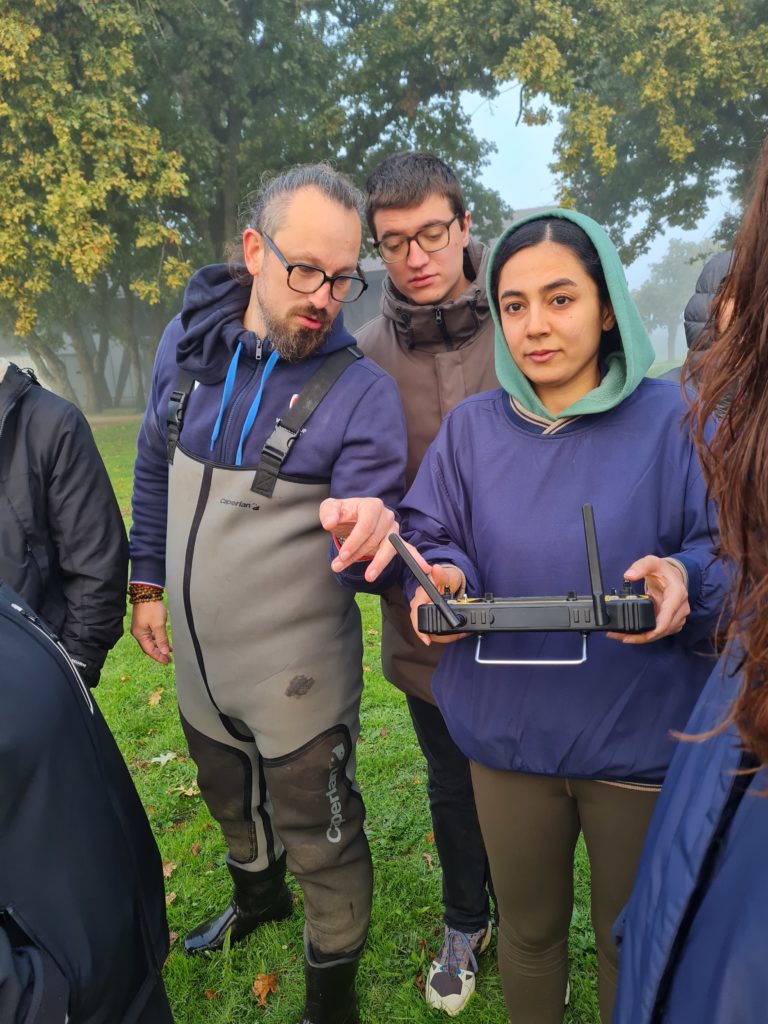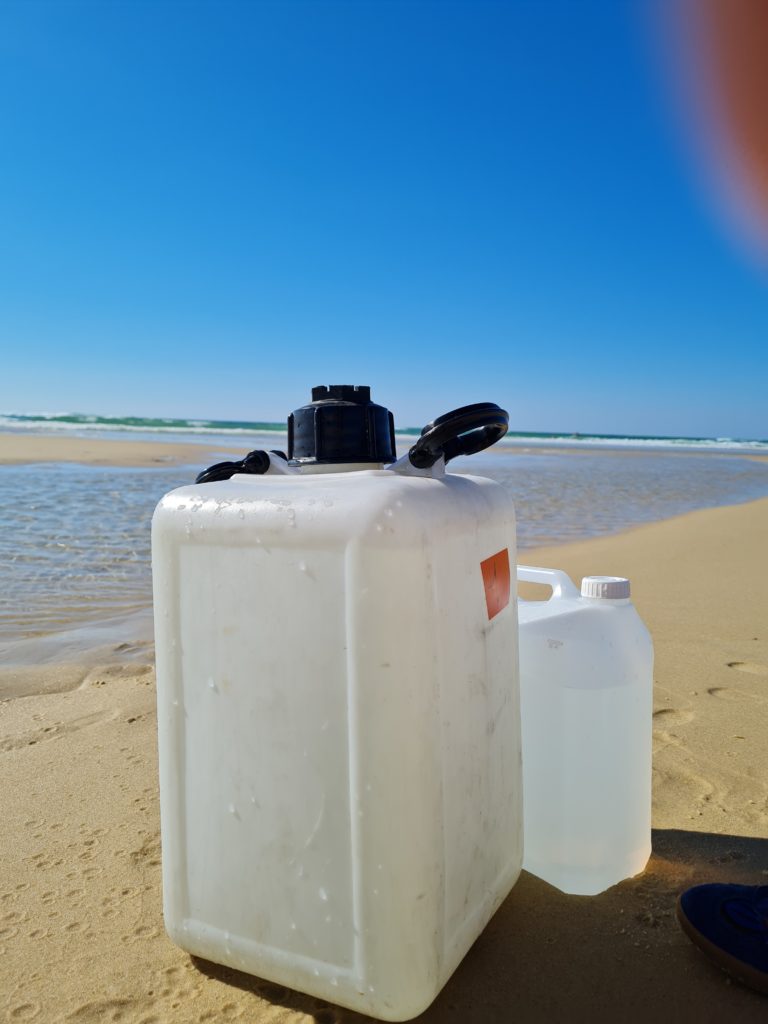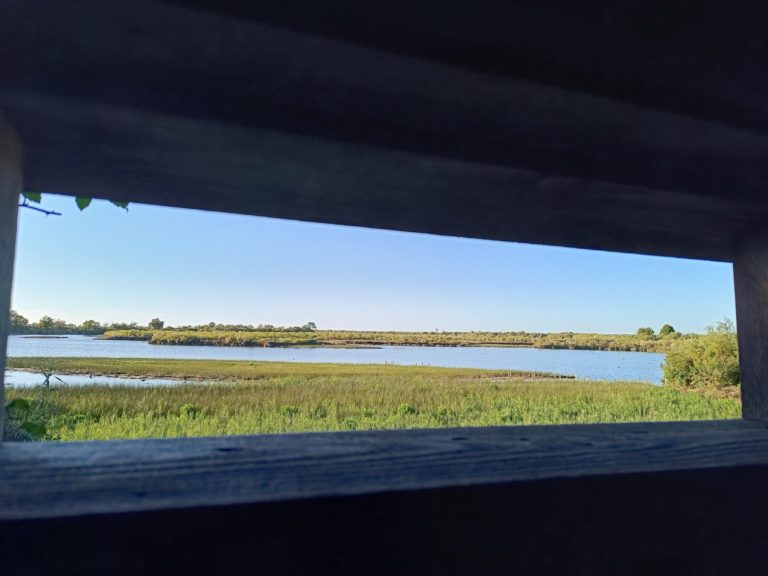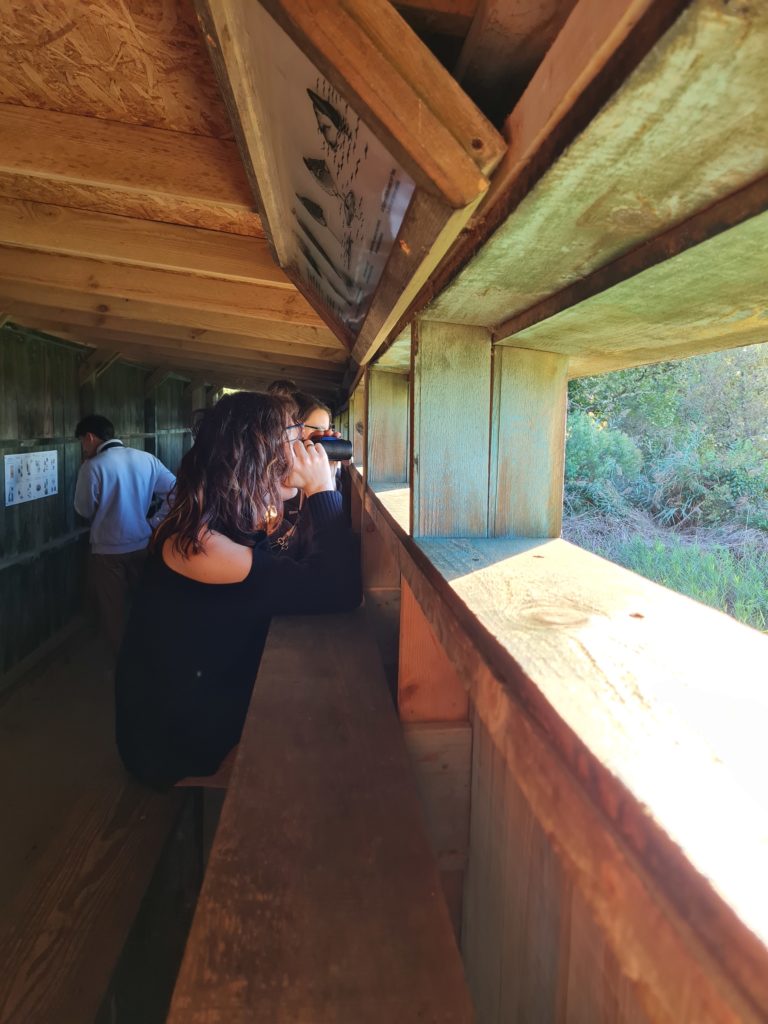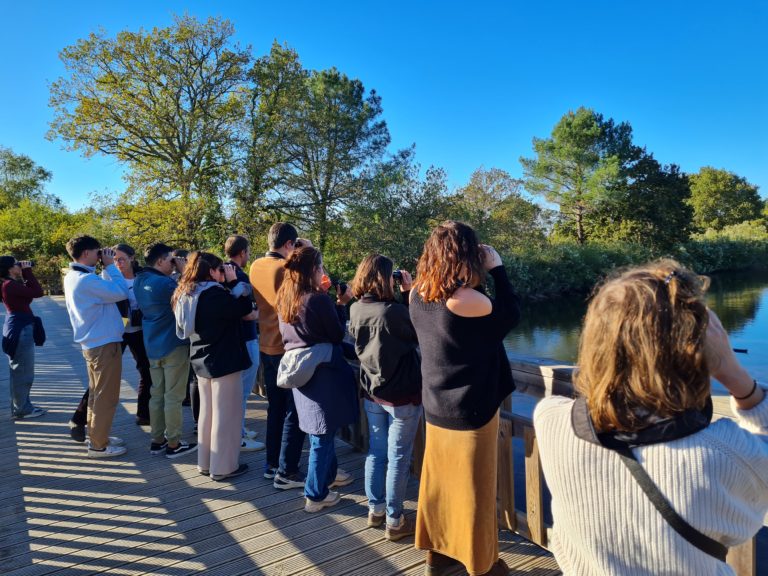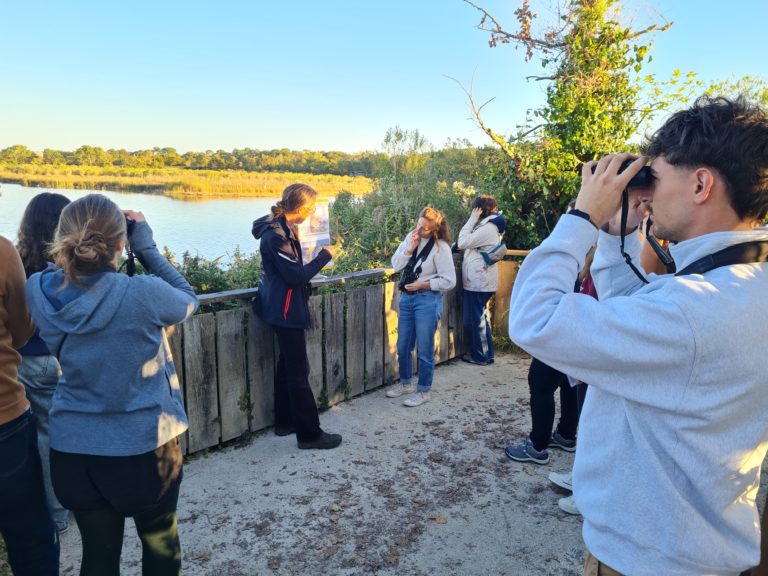EcotoxicoMic Research School 2025
- Home
- EcotoxicoMic Research School 2025
Functional Experimental Approaches in Microbial Ecotoxicology
Maison de la Nature du Bassin d’Arcachon, Le Teich (France)
October 2025, 06-10
A Week to Remember: Recap of the First EcotoxicoMic Research School
The first International Researcher School organized by the EcotoxicoMic network took place from October 6–10, 2025, at the Maison de la Nature du Bassin d’Arcachon, in Le Teich, France. Focused on the theme: “Functional Experimental Approaches in Microbial Ecotoxicology”, this week-long event brought together 16 early-career researchers (PhD students and post-docs) from various International research laboratories, working across terrestrial, freshwater, and coastal ecosystems.
Throughout the week, participants took part in a rich and varied program combining theory, fieldwork, and lab-based experimentation. The training began with a hands-on field session in terrestrial and sedimentary environments, featuring the Biochem-Env mobile laboratory, led by Christian Mougin and Jasna Nikolic. This was followed by a drone piloting session with the GEPEA team, where participants learned how to use drones for sampling and in situ measurements in littoral environments, as well as the application of biosensors. In the lab, the group conducted analyses of collected samples, explored functional measurements in mesocosms, and gained experience with experimental approaches across different environmental matrices. The scientific content was enriched by a series of insightful keynote lectures, while more informal moments — such as birdwatching at the Teich nature reserve — provided opportunities to connect and unwind.
Thanks to all those who helped to make this event successful!
Thanks to all those who helped to make this event successful!
We are deeply grateful to all those who contributed with their time, expertise, and energy to make this first edition a success:
🔬 Lab practices & data analysis
- Chloé Bonnineau, INRAE EABX, main organizer of the research school whose dedication and coordination were key to making the event such a success.
- Mélissa Eon, INRAE EABX
- Laura Kergoat, INRAE RiverLy
- Cristiana Cravo-Laureau, Université de Pau (online)
- Sylvia Moreira, INRAE EABX
- Soizic Morin, INRAE EABX
🌿 Field approaches
- Christian Mougin & Jasna Nikolic, UMR ECOSYS INRAE / AgroParisTech / Université Paris-Saclay, Biochem-Env Platform
- Sulivan Jouanneau & Gérald Thouand, GEPEA – UMR 6144 CNRS / Université de Nantes / IMT Atlantique / ONIRIS – USC 1498 INRAE
🎤 Keynote speakers
- Joan Artigas, Université de Clermont-Auvergne
- Aurélie Cébron, LIEC, Université de Lorraine
- Nicolas Creusot, INRAE EABX
🏡 Warm thanks to our hosts
- The Aquatic Vegetation and Biomarkers labs at UR EABX (INRAE, Cestas) for their kind welcome
- The team at the Maison de la Nature du Teich, especially: Sophie, for accommodation and logistics; Thomas, for guiding us through the soil sampling sites and Anne-Julie for the insightful tour of the nature reserve
💰 To our financial contributors whose support have been instrumental in the successful execution of this event
- EcotoxicoMic Network
- INRAE AQUA department
- H2O Lyon
- ECOTOX network
- Fondation evertéa
- University of Bordeaux
- EPOC laboratory
- Aquitaine Observatory of Universe Sciences
💬 Special thanks to
- Roxanne Dhommée, Maria Osipenko, and Ionna Gkoni for organizing the Ecotoxicomic YR quiz
- Emilie — for her advices on organizing aspects
- And of course, to all the participants, for their interest, enthusiasm, curiosity, and good spirit — even when things didn’t go exactly as planned!
Overview
The EcotoxicoMic Research School 2025 offers an in-depth exploration of functional and experimental approaches in microbial ecotoxicology. Aimed at PhD students, postdoctoral researchers, and scientists, this course will focus on the study of contaminant–microbiota interactions, integrating concepts from ecology, microbiology, and ecotoxicology.
The program will combine lectures, hands-on workshops, scientific exchanges, and collaborative discussions — all in a unique natural setting.
The sessions will include :
- Keynotes by international researchers
- Field training on soil, river and marine environment
- Mesocosms : artificial rivers, soil microcosm…
- Lab practices on functional measurements: photosynthesis, respiration, enzymatic activities…
- Data analyses
- Results presentation and discussion
Venue
Maison de la Nature du Bassin d’Arcachon, Le Teich
& INRAE, Cestas (France)
Participants are informed that travel is not included in the registration fee.
The Maison de la Nature du Bassin d’Arcachon is accessible from the “Le Teich” railway station (1.4km).
Participation & Eligibility
Participant limit: 16 attendees max
Minimum number of registrations required: 10
Selection based on application materials
Application
Deadline for applications: June 29, 2025
Required documents:
A short CV (max. 2 pages)
A brief motivation letter (max. 1 page), including: a summary of your research topic, your interest in the school and your expectations
Send your application in a single PDF file “name-firstname.pdf” to chloe.bonnineau-at-inrae.fr.
¡¡¡Please entitled your email “EcotoxicoMic 2025 Research school“!!!
Provisionnal program
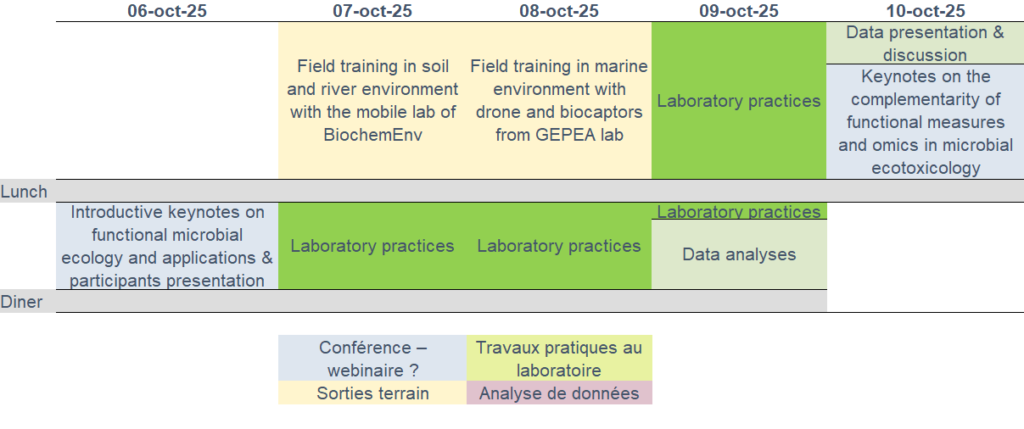
Speakers & Trainers
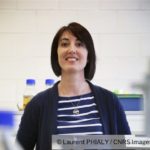
Aurélie CEBRON
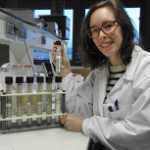
Laura KERGOAT

Cristiana CRAVO-LAUREAU
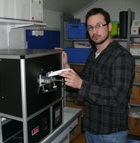
Sulivan JOUANNEAU
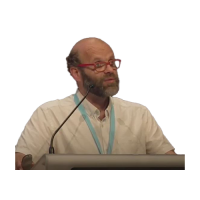
Christian MOUGIN
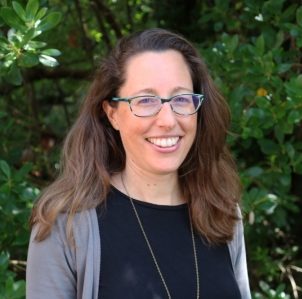
Chloé BONNINEAU
Organization team
Marie-Cecile Affholder, Fondation evertea, Valence, France
Laure Bellec, Université de Bordeaux, France
Chloé Bonnineau, INRAE EABX, Bordeaux, France
Cristiana Cravo-Laureau, Université de Pau, France
Roxane Dhommee, Université de Liège, Agro-Bio Tech Gembloux, Belgique
Nicolas Gallois, Université de Toulon, France
Abdulsamie Hanano, Atomic Energy Commission of Syria, Damascus, Syria
Soizic Morin, INRAE EABX, Bordeaux, Francefr
Carmen Palacios, Cefrem, UMR 5110 CNRS UPVD (Université de Perpignan Via Domitia), France
Stéphane Pesce, INRAE RiverLy, Lyon-Villeurbanne, France
Clémence Thiour-Mauprivez, Université de Bourgogne, Dijon, France
